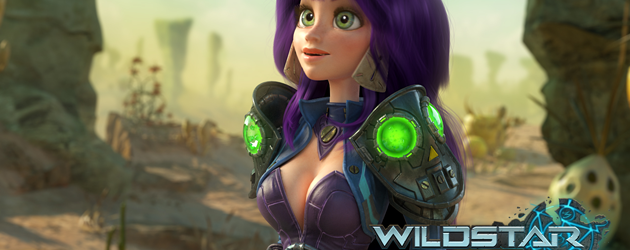Holding Out For a Hero (or Heroine)
Socially relevant content and the under-representation of female protagonists in games.
I woke up this morning to find many of the high-profile community members within my twitter circle, expressing disdain and disappointment at Blizzard Entertainment's Rob Pardo, for statements quoted in a recent Polygon article that questioned the lack of 'socially relevant content' in games, e.g. the lack of female protagonists and the sexualization of female characters.

Todd Harper, author of the Polygon opinion piece, questioned Pardo on Blizzard's values during a talk at MIT Media Lab, and whether the “company's perception of their audience might impact how they portray socially progressive content.”
Pardo's response: “I wouldn't say that's really a value for us. It's not something that we're against either, but it's just not something that's...something we're trying to actively do. We're not trying to bring in serious stuff, or socially relevant stuff, or actively trying to preach for diversity or do things like that.”
While I do believe that some things don't have a place in games, regardless of what's going on in the real world around me, when it comes to female representation in game content, the problem is – as Pardo states – that most of Blizzard's developers are “guys who grew up reading comics books," who then go on to present female characters as a “sexualized comic book ideal.”
As a woman, I can understand a lot of the reasoning behind male developers of a certain age wanting to give more focus in their games to male protagonists. That's the way things were in their youth, especially in the fantasy genre. Any game developer wants to produce a successful product, and will therefore cater to the demographic they feel is, not only the majority, but the most vocal.

While I don't have access to official statistics regarding the ratio of men > women in Blizzard's most successful franchise, World of Warcraft, I can refer to a report published in June 2013 by the Entertainment Software Association, showing that 45% of gamers are female.
Writer Amanda Hess wrote something interesting on this subject for Slate: “The problem is not that women don’t play games. They do. The problem isn’t just that women are vastly under-represented as developers of games, though they are. The problem is that women are buying and playing games despite the fact that the products often don’t view them as equal protagonists.”
In response to this, my question would be, how much of the male gamer population would continue to buy if the shoe were on the other foot? I imagine that's a question successful companies like Blizzard also worry about. The important thing to realize here is that the scale does not have to swing to the other extreme to help in this area.
To quote another statistic published by the ESA, the average game player is 30-years-old, and 36% of game players – the largest age segment – are 36 or older. I firmly fit into this demographic and maybe that's the real issue here. This age group grew up in a society where women played supporting roles or love interests, and even if they were the heroine of the story, they were usually sexualized.

I truly believe that things will change, but it will take time. The good news is that this subject is gaining more and more attention these days, and as a younger generation of gamers and developers enter the scene, change will start to come a little faster.
I definitely would like to see more equal representation of women in games from large game companies, and as a fan of Blizzard games, I'd especially love for them to be among the first to take a step in this direction. As a company, I certainly don't consider Blizzard to be sexist. Indeed they employ a lot of women, especially as Community Managers, and give a lot of attention to female writers, female-driven fansites and other community members. As for employing female developers, they supposedly “don't get the applications.”
The company that sparks an industry-wide realization that women do make up a huge number of gamers and that it's okay to write a strong female character into a game, without giving her exaggerated, physical appeal, will truly be heroes indeed.
Penny for your thoughts,
Follow me on Twitter: @QelricDK

